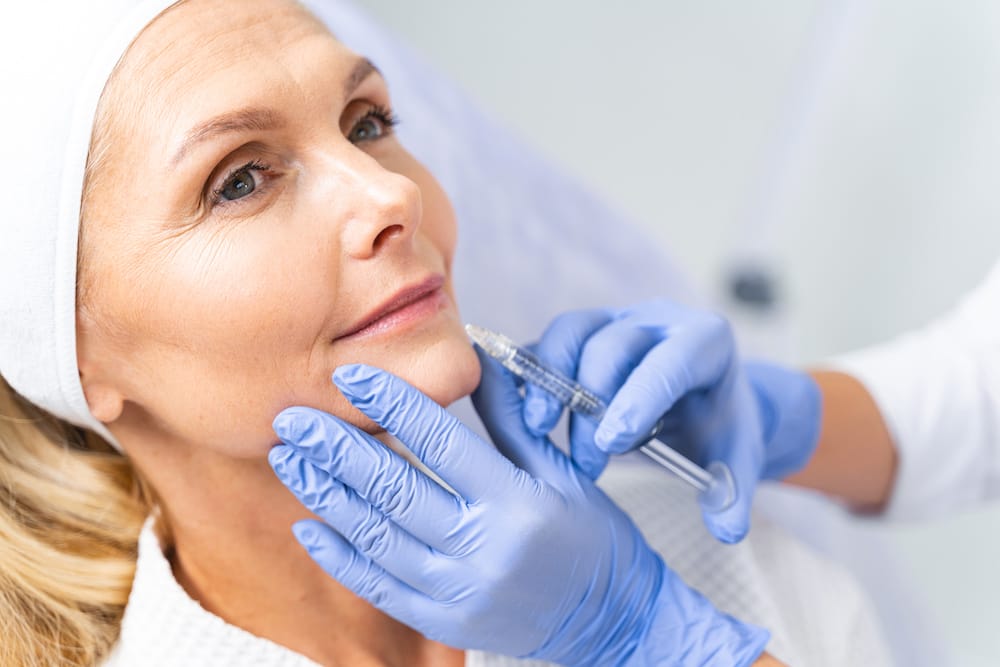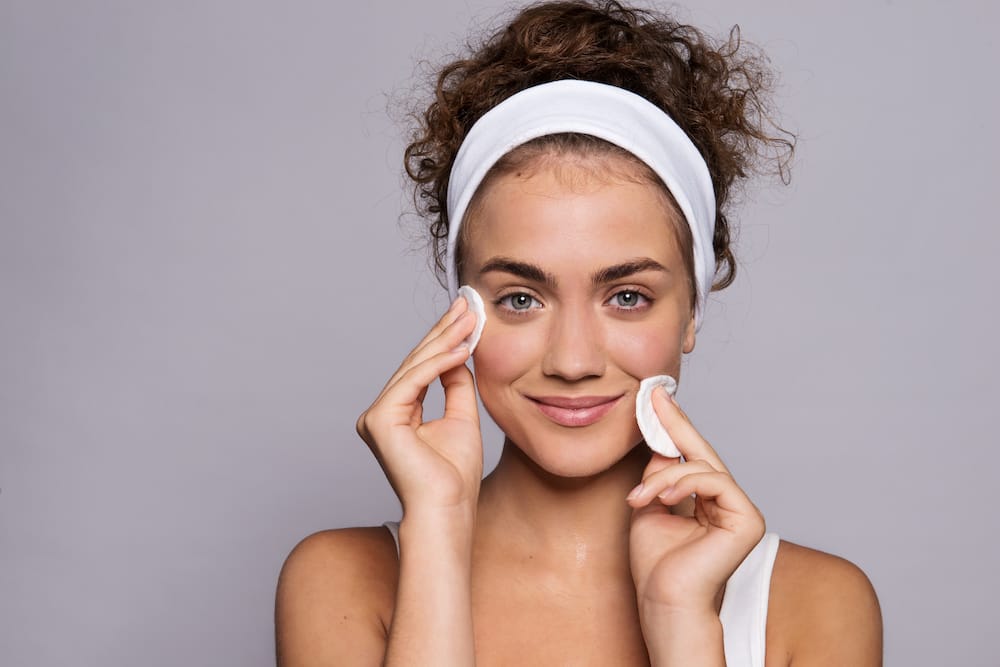The skin is one body organ that’s very much exposed to the environment, making it susceptible to aging. Some extrinsic factors that cause aging include air pollution, solar radiation, climate, alcohol use, poor diet, and smoking. Aside from these, skin aging can also be brought about by intrinsic factors like loss of underlying fat, reduced collagen and elastin production, slowed-down exfoliation, and decreased cellular regeneration. (1)
When the skin ages, the cutaneous cells undergo some phenotypic changes. Moreover, the components of the extracellular matrix-like elastin and collagens undergo some functional and structural changes. The result is laxity, loss of elasticity, wrinkles, discolored scars, leathery toughness, dry skin, freckles, skin tags, and bumps. These changes are harmless, but they can greatly affect how you look. (2)
For that reason, you’d want to consider the following tips to reduce skin aging:
- Go for anti-wrinkle injections
As you get older, there’s a high chance of getting wrinkles from smiling or frowning. Anti wrinkle injections can be of great help in such situations. They’re primarily used in treating:
- Facial Wrinkles
- Crow’s feet
- Lip lines
- Frown lines
Once you get the injection, you’re assured of a more youthful and revitalized look. The whole process is usually straightforward with no pain or complex procedures. It’s best to get advice from a professional dentist, plastic surgeon, or dermatologist before you get the injection though. They can refer you to a trained person or administer the injection themselves.
For your health’s sake, don’t get such services from just any clinic or spa, especially if you’re unsure of the nurse’s or beautician’s qualifications in handling the treatment procedure. Sticking with trained providers eliminates the risk of medical emergencies. Another thing that you need to know is that medical insurance doesn’t typically cover anti-wrinkle injections. Thus, you need to have around USD$400 to USD $700 to get this treatment. (3)
- Avoid over-exposure to the sun
When you decide to go out on a sunny day to do your errands or maybe bask at the beach, it’s essential that you protect your skin from the dangerous ultraviolet (UV) rays of the sun. You can cover your head with a protective garment like a lightweight shirt, a light scarf, or a wide-brimmed hat.
It’s also best to habitually apply a water-resistant SPF 30 broad-spectrum sunscreen on exposed skin. The other alternative is wearing apparel that has a UPF (ultraviolet protection factor) label.
- Avoid overly repeating facial expressions
Facial expressions like squinting, frowning, smiling, and others which you probably make habitually, can form more wrinkles on your face. This happens when gravity couples with your expressions, thus, causing changes to your face. (4)
In essence, facial expressions lead to the contraction of the underlying muscles of your skin. When this happens repeatedly, the lines formed may become permanent for years. Thus, you should be more conscious and intentional about avoiding repeating certain expressions, especially frowning.

- Take a balanced diet
According to research, regular intake of fruits and fresh vegetables plays a key role in reducing skin aging. They help remove fine lines and dull complexions, making your skin appear smoother. You must also avoid refined carbohydrates and sugar because they speed up the aging process. (5)
Fundamentally, when your diet includes foods rich in water, antioxidants, healthy fats, and other nutrients like Vitamin C, the skin will automatically glow. Other foods that help reduce skin aging include:
- Green tea
- Extra virgin olive oil
- Fatty fish
- Papaya
- Avocado
- Avoid smoking
As long as your skin is healthy, it’ll always regenerate. This means that old collagen fibers are broken down and new collagen replaces them. This natural process can, however, be inhibited by smoking.
The reason is that smoking causes a significant reduction in collagen production. The ultimate result is getting a sallow and dark complexion alongside wrinkling. So, avoid smoking if you want your skin to maintain its radiance and overall health.
- Exercise regularly
Exercise is important because it helps boost your immune system and improve overall blood circulation. When you jog, take long walks, run or work out, your body releases sweat which plays a significant role in purifying your skin.
It does this by removing dirt and impurities through the skin pores, leaving them open and fresh. This causes the skin to look younger, gorgeous, and become more elastic.
Conclusion
Everyone desires to look younger than their age. And this is possible through lifestyle choices that reduce skin aging. These lifestyle changes include regular exercise, healthy eating, and avoiding cigarettes and alcohol. Another alternative is going for anti-wrinkle injections, otherwise known as preventative botox. These, coupled with a proper skincare routine will ensure your skin remains vibrant and glowing.
References
- “National Library of Medicine”, Source: https://www.ncbi.nlm.nih.gov/pmc/articles/PMC6047276/
- “Can I reverse the effects of aging skin?”, Source: https://www.mayoclinic.org/healthy-lifestyle/adult-health/expert-answers/aging-skin-treatment/faq-20455139
- “Preventative Botox: Does It Ward Off Wrinkles?”, Source: https://www.healthline.com/health/beauty-skin-care/preventative-botox
- “Wrinkles”, Source: https://my.clevelandclinic.org/health/articles/10984-wrinkles#:~:text=Facial%20muscle%20contractions&text=Smiling%2C%20frowning%2C%20squinting%20and%20other,to%20the%20formation%20of%20wrinkles.
- “10 Anti-Aging Foods to Support Your 40s-and-Beyond Body”, Source: https://www.healthline.com/health/food-nutrition/anti-aging-foods#1.-Watercress
Throughout the year, our writers feature fresh, in-depth, and relevant information for our audience of 40,000+ healthcare leaders and professionals. As a healthcare business publication, we cover and cherish our relationship with the entire health care industry including administrators, nurses, physicians, physical therapists, pharmacists, and more. We cover a broad spectrum from hospitals to medical offices to outpatient services to eye surgery centers to university settings. We focus on rehabilitation, nursing homes, home care, hospice as well as men’s health, women’s heath, and pediatrics.








